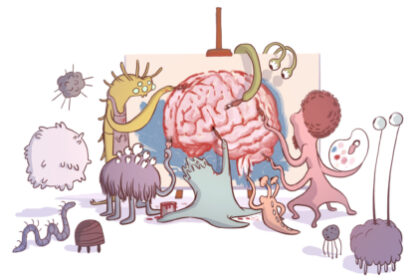Autism is a complex developmental disorder that affects millions of people worldwide. Over the years, there have been numerous theories and speculations about the potential causes of autism.
One such theory was the link between autism and the use of acetaminophen, the active ingredient in Tylenol, during pregnancy. In recent years, this theory has gained significant attention, with several studies investigating the potential association between the two.
However, in 2021, a settlement case involving Tylenol and autism made headlines, raising questions about the safety of the popular pain reliever during pregnancy. In this article, we will explore the details of the settlement case and what it could mean for the future of autism research and medication safety.
Over the past decade, there has been a significant increase in the diagnosis of autism spectrum disorder (ASD) in children. According to the Centers for Disease Control and Prevention (CDC), the prevalence of ASD in the United States has increased from 1 in 150 children in 2000 to 1 in 54 children in 2020.
There are several factors that may contribute to this rise in autism diagnosis. Obviously increased awareness and recognition of ASD by healthcare providers, educators, and the general public is a factor.
More children who may have been previously misdiagnosed or undiagnosed are now being diagnosed. The definition of ASD was also expanded in 2013, which refined diagnostic criteria to include a wider range of symptoms and severity levels.
Environmental factors and genetics may also play a role in the increase in autism diagnosis. Some studies suggest that exposure to certain chemicals, such as pesticides or air pollution, during pregnancy or early childhood may increase the risk of developing ASD.
Let’s not forget to mention the ever expanding catelog of chemicals they continue to expose us to. According to a 2020 report from the Centers for Disease Control and Prevention (CDC), the prevalence of ASD in the United States is 1 in 54 children.
In contrast, a study published in the British Medical Journal in 2019 reported a prevalence of 1 in 132 children in the United Kingdom.
One would wonder if some of the 85 different pesticides they allow in the United States, that are banned in other countries, could be part of the issue?
Or, maybe the skyrocketing abuse of artificial sweeteners in most all processed foods, that the FDA has extremely loose regulations on.
But for now, we are going to focus on the on-going bombshell 2021
Tylenol Autism Lawsuit.
In 2021, a settlement case against Johnson & Johnson, the makers of Tylenol, made headlines after the company agreed to pay $26 million to settle a lawsuit related to the use of the pain reliever during pregnancy and the risk of autism spectrum disorder (ASD).
The lawsuit alleged that Johnson & Johnson knew about the potential link between the use of Tylenol during pregnancy and the risk of ASD but failed to warn consumers about the potential risks. The lawsuit also claimed that the company engaged in false and misleading advertising about the safety of Tylenol during pregnancy.
Johnson & Johnson denied any wrongdoing and did not admit liability in the settlement. In a statement, the company stated that they settled the case to avoid the costs and uncertainty of litigation.
Acetaminophen is the active ingredient in hundreds of medications used to reduce fever and treat mild to moderate pain. For decades, acetaminophen’s most recognizable brand name, Tylenol, and generic versions were considered acceptable drugs to use during pregnancy.
Experts now recommend that pregnant women should only use acetaminophen if it is medically indicated and that they should minimize their risk by using the lowest dose for the shortest time possible.
An increasing number of children in the United States have experienced cognitive, learning, and/or behavioral issues. The U.S. National Health Interview Survey reportedly found a 9.5% increase in the rate of developmental disabilities from 2009 to 2011 and 2015 to 2017. Studies suggest that acetaminophen exposure during pregnancy may contribute to these trends.
Does Tylenol Cause Autism?
Studies suggest that prenatal acetaminophen exposure may increase the risk of neurodevelopmental and behavioral disorders such as autism.
In 2018, researchers performed a meta-analysis of seven studies that involved more than 130,000 pairs of mothers and children. They were reportedly followed for periods of 3 to 11 years, depending on the study. The researchers found that children who were exposed to acetaminophen in utero for prolonged periods had a 20% higher chance of developing autism.
The timing and length of acetaminophen use during pregnancy may be contributing factors. For now, experts recommend that women not take acetaminophen during pregnancy unless medically indicated.
If you are a parent or caregiver of children exposed to acetaminophen in utero and subsequently diagnosed with autism, you may qualify to participate in a neonatal Tylenol exposure lawsuit investigation. You may be able to claim compensation for your child’s injuries, including medical expenses, lost income, pain and suffering, and other losses.
Many law firms expect over 100,000 victims to file a Tylenol autism lawsuit. If successful, the jury payouts and settlement amounts for a Tylenol lawsuit could be high. These lawsuits may settle in 2023, and a new warning label will be added to protect unborn children.
The Science Linking Tylenol to Autism
Acetaminophen, known chiefly by its popular brand name Tylenol, has been one of the most widely used over-the-counter medications for decades. Almost every adult in the U.S. has probably taken Tylenol at least once, and millions use it regularly to treat various aches and pains.
Approximately 20% of the U.S. population uses Tylenol or acetaminophen products weekly. Notably, two-thirds of women take acetaminophen during pregnancy.
Until recently, Tylenol was believed to be completely safe with no known health risks. However, acetaminophen is one of the least understood compounds in medical use. Scientists still do not understand precisely how acetaminophen relieves pain and reduces fever.
Acetaminophen has long been marketed to pregnant women as the safest pain and fever relief option during pregnancy. It has often been marketed as the only safe over-the-counter pain drug during pregnancy. This has contributed to a general public perception that Tylenol is entirely safe for use during pregnancy.
However, this perception changed drastically last year with the publication of new medical research on the use of Tylenol during pregnancy. Increasingly, scientists believe that neurotoxic exposures, such as prenatal acetaminophen exposure, explain a trending increase in autism and ADHD diagnoses.
The Consensus Statement summarized a growing body of epidemiological research and animal testing indicating that prenatal exposure to acetaminophen can alter fetal development and increase the risk of neurodevelopmental disorders such as autism. This body of research included 29 observational studies, including over 220,000 mother-child pairs worldwide.
These studies consistently identified a link between the significant use of Tylenol or acetaminophen during pregnancy and higher rates of autism spectrum disorder. Specifically, the studies found that extended Tylenol use during pregnancy increased the baby’s risk of autism by 20%. This study played a significant role in spawning acetaminophen autism lawsuits.
The studies cited in the Consensus Statement also identified a clear correlation between the autism risk level and the duration and amount of acetaminophen usage during pregnancy. In other words, more Tylenol usage during pregnancy generally equated to higher autism rates.
The Consensus Statement concluded by strongly recommending that the medical community and public health agencies take preventive actions to warn about the potential risks of using Tylenol during pregnancy. One of the recommendations included a warning label on all acetaminophen products about use during pregnancy.
A Tylenol Lawsuit Is About Giving Women a Choice
The real focus of every acetaminophen lawsuit is the failure to warn pregnant women about the potential risks of using acetaminophen and Tylenol during pregnancy.
Despite growing evidence linking the use of acetaminophen to ADHD and autism, manufacturers and marketers have not included any warnings on their labels. Although evidence suggests otherwise, acetaminophen is marketed as the only safe over-the-counter pain relief option for pregnant women.
This lawsuit is about giving pregnant women a choice to make informed decisions about taking Tylenol after weighing the risks and benefits associated with its consumption. The goal is not to recall Tylenol but rather to ensure that pregnant women are appropriately informed so they can make the best choices for themselves and their unborn children.
Why not just add a warning telling women what we know?
The answer is money.
Adding an autism warning to Tylenol labels would significantly impact sales as it would create fear and uncertainty among pregnant women. Are expectant mothers with mild neck pain and muscle aches going to use Tylenol if they know of a risk of a potential link to autism?
Even hearing from acetaminophen defenders who say the evidence is inconclusive would be enough to chill sales resulting in a loss of revenue for Tylenol manufacturers. It goes deeper than just pregnant women.
The media coverage of a new warning surrounding an ADHD and autism warning would also damage the brand’s safe reputation and erode consumer trust. This means less profits.
Tylenol (the brand name for acetaminophen) is one of the most popular and widely used over-the-counter pain medications in the world. Acetaminophen holds a uniquely preeminent place in pharmacology and medicine.
Around 50 million American consumers (roughly 20% of the adult population in the United States) use products containing acetaminophen each week, with more than 25 billion doses being used annually.
At the same time, it is, paradoxically, probably one of the most dangerous and least understood compounds in medical use. Acetaminophen’s mechanism of action remains unclear. Scientists have yet to figure out how acetaminophen relieves pain and reduces fever.
Despite the drug’s unknown mechanism of action, acetaminophen has long been marketed to pregnant women as the safest pain reliever and fever-reducing drug for use during pregnancy. As a result, Tylenol is used by more pregnant women than any other over-the-counter drug.
Baby Food and Autism
We have known that many have linked baby food and autism. Until recently, lawyers generally thought Tylenol lawsuits were not as strong as the baby food claims.
But that wisdom has been flipped on its head because it is likely that the Tylenol cases will be much easier to prove. Moreover, women’s medical records are replete with instructions from doctors to take acetaminophen for aches and pains.
Over the past decade, a growing body of scientific studies has raised increasingly more and greater concerns about the correlation between prenatal acetaminophen exposure and adverse neurodevelopmental outcomes, including autism.
Hopkins Study
A Johns Hopkins study looked at cord blood samples and measured acetaminophen levels. The results were stunning. The highest levels of acetaminophen found in the cord blood were almost three times as likely to be on the autism spectrum compared to children with the lowest levels in their cord blood. This study has fueled the Tylenol lawsuit more than any other study.
Autism Drugs at Issue
The non-exclusive list of drugs:
- Alka-Seltzer PLUS
- CoricidinHBP
- Dayquil
- Excedrin
- FluTherapy
- Midol
- Mucinex MAXIMUM STRENGTH FAST-MAX COLD, FLU & SORE THROAT
- Mucinex MAXIMUM STRENGTH FAST-MAX COLD & FLU (ALL-IN-ONE)
- Mucinex MAXIMUM STRENGTH NIGHTSHIFT COLD & FLU
- Mucinex MAXIMUM STRENGTH NIGHTSHIFT SEVERE COLD & FLU
- Mucinex MAXIMUM STRENGTH SINUS-MAX PRESSURE, PAIN & COUGH
- Mucinex MAXIMUM STRENGTH SINUS-MAX SEVERE CONGESTION & PAIN
- Nyquil
- Panadol
- Robitussin Maximum Strength
- Sinex SEVERE ALL IN ONE SINUS
- Sudafed Head Congestion + Flu Severe
- Sudafed Head Congestion + Mucus
- Sudafed PE Sinus Pressure + Pain
- Theraflu
- Tylenol
- Store-brand acetaminophen
This list is NOT exhaustive and any drug containing acetaminophen qualifies.
If your child has autism and you (or for dads, the child’s mother) used any of the medications above during pregnancy, you may be eligible for compensation for your child and your family.
In closing, I’d like to speak for myself to say that it is much better to figure out the source of pain than to take pain killers all the time. They are not healthy for anyone, not just pregnant women. There are many natural pain relievers on the market now as well.
My favorite go-to pain reliever is actually not a pill at all, it is my Mito Red Light Therapy Device. Red light and near-infrared light can help significantly in reducing pain and inflammation in the body. Read more about the benefits and science behind it here. Could Red Light Therapy Be The Answer To Your Body’s Aches And Pains?
Please find more information on pursuit of your case with these links below.
Miller & Zois
Dolman Law Group














